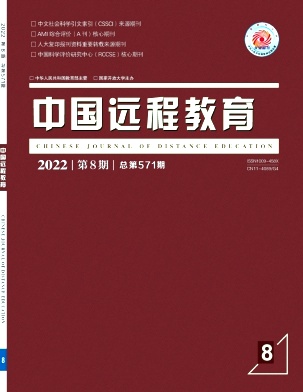
Contents
• Towards supply-side reform of professional development for basic education teacher in the digital age
• Future teacher education empowered by virtual reality: logic, scenario and reshaping
• Recognition and visualization of emotion in online peer feedback: promoting teachers’deep reflection and addressing teaching problems
• Towards a blended teaching competency model for university faculty based on TPACK
• "Dual Teaching" against the backdrop of balanced development: dilemma and solution
• Resolving the contradiction between large-scale education and personalized education: logical framework and practical approach to data-driven large-scale personalized teaching
• STEM education in rural areas: possibility, dilemma and solution
• Factors influencing high school students’digital literacy practices in online forums: multi-dimensional interaction between teachers and students
• Construction and application of digital representation model of learning engagement in collaborative learning
• Abstracts
• Contents
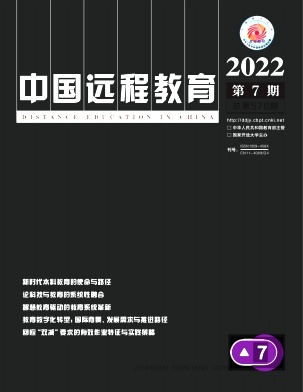
Contents
• Mission and pathways of undergraduate education in the new age
• Towards systematic integration of technology and education
• Smart education-driven innovation in education systems
• Digital transformation of education: international perspective, development needs and implementation strategy
• Assembling new toolboxes of methods and theories for innovative critical research on educational technologyeducational technology
• Reflections on lifelong education for global ethics
• Developing educational technology as a discipline against the backdrop of First-class Discipline Construction Initiative: challenges, opportunities and potential pathways
• Features of effective assignments and implementation strategy in response to the Double Reduction policy
• A dialectical approach to simplifying deeper learning research methodology
• Abstracts
• Contents
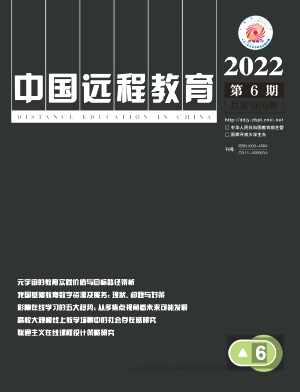

Contents
• Metaverse for education: practical value and development objectives
• China’s basic education digital resources and services: status quo, problems and solutions
• Five major trends shaping online learning: a multifocal view of possible futures
• Towards a measurement model of social presence in massive online teaching of higher education
• Exploring the interpretability of a student grade prediction model in blended courses
• International postgraduate online education: quality assurance and lessons
• Strategies for designing Connectivist online courses: building on five design iterations of a cMOOC
• Abstracts
• Contents
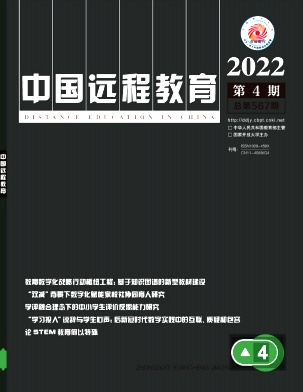
Contents
• Knowledge graph-based textbooks as a cornerstone of the digitalization strategy for education
• Digitally-empowered family-school-community collaboration in promoting student all-round development in the“Double Reduction”context
• Assessment for, as and of learning: a study of primary and secondary students’reflective assessment
• Off-campus training institution governance: against the backdrop of“Double Reduction”
• “Engagement”discourses and the student voice: connectedness, questioning and inclusion in post-Covid digital practices
• Why is STEM education so special?
• Cultivating teachers’design thinking in the intelligent age: logical perspectives and dilemma solutions
• China National Data Platform of Higher Education Quality Monitoring: current status and improvement suggestions
• Abstracts
• Contents
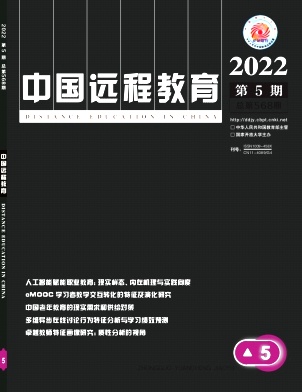
Contents
• AI-empowered vocational education: current state, internal mechanism and practice dimensions
• Skill formation and the transformation and development of vocational education in the intelligent age
• Transformation in cMOOC learner interactions: features and evolution
• Third-age education in China: measures to overcome supply shortages
• MOOC development in Europe: trends and implications
• Reviewing the micro-credential literature: more than just another passing educational fad?
• Multi-dimensional behavior characteristics analysis and academic performance prediction in asynchronous online discussion
• Profiling characteristics of an excellent teacher: towards a qualitative analysis
• Abstracts
• Contents
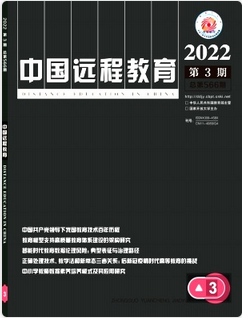
Contents
• One hundred years of educational technology development in China under the leadership of the Communist Party of China
• Towards a high-quality education system supported by educational modeling
• Ethical risks of educational data in the intelligent era: typical features and governance paths
• Balancing technology, pedagogy and the new normal: post-pandemic challenges for higher education
• Constructing a collaborative learning model from the perspective of learning space integration
• Towards a data literacy cultivation model for primary and middle school teachers
• Factors influencing online course users’sticky behaviors
• Designing and applying fraction game from the perspective of learning sciences
• Abstracts
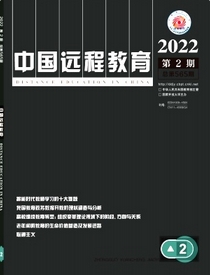
Contents
• Ten issues of concern for teacher learning in the age of intelligence
• Pathways and strategies for deeper learning evaluation: a multi-modal data analysis
• An investigation of educational data accessible from open government data platforms in China
• Continuing higher education transition: phase, direction and relationship from the perspective of organizational change theory
• Leisure education for the elderly: its life-enhancing value and development pathways
• Connectivism
• Factors influencing knowledge contribution performance of online learners in social Q&A community
• Towards a framework for computational thinking evaluation based on literature review
• Abstracts
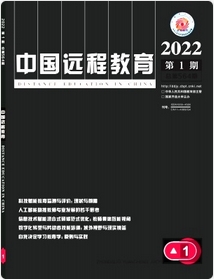
Contents
• Technology-enabled monitoring and evaluation of education: state of the art and prospects
• Reflections on AI-assisted teacher professional development
• Optimizing IT-enabled blended paradigm of professional development through the lens of teacher collective efficacy
• Digital transformation and workforce skill training: lessons learnt from outside China
• On the starting point and developmental stages of ICT in education in China
• Open Universities Australia: overview and implications
• Designing scaffolding questions to promote connection: exploring the relationship between scaffolding question types and interactivity
• So, you want to do heutagogy: principles and practice
• A meta-analysis of empirical studies on the equivalence between online examination and traditional examination from 2000 to 2020
• Exploring university students' online knowledge construction behavioral patterns and sequential model
• Abstracts